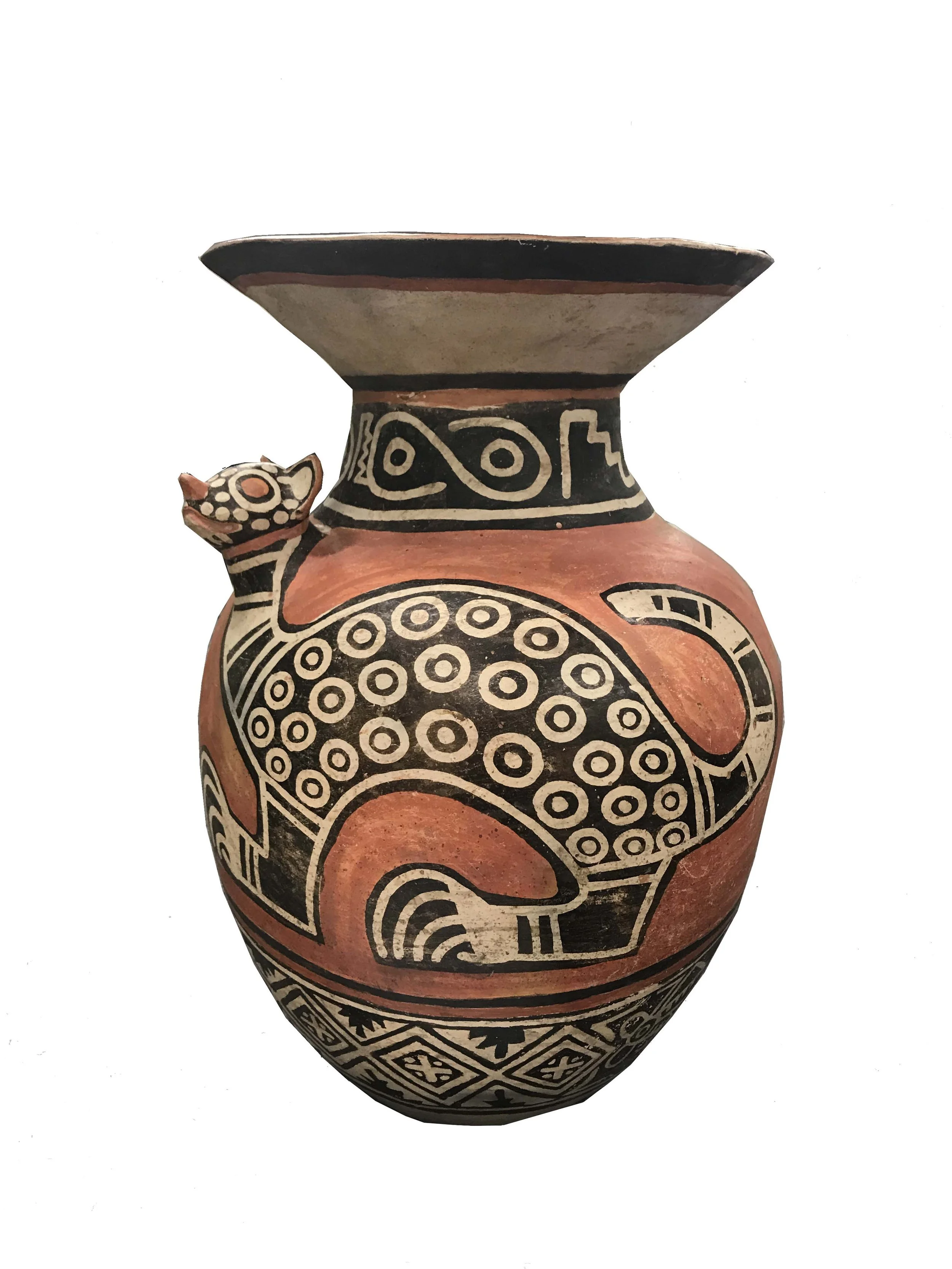Unknown Artist
Recuay Vessel
Peru, Recuay culture
ca. 200 BC - AD 500
Artesano desconocido
Vasija recuay
Perú, cultura recuay
ca. 200 BC - AD 500
On view
Date
ca. 200 - AD 500
Fecha
ca. 200 - AD 500
Material
Ceramic
Materiales
Cerámica
Medium
Ceramics
Técnica
Cerámica
Dimensions
16 x 10 in
Dimensiones
16 x 10 in
Accession Number
2017.9
Número de
inventario
2017.9
ENGLISH
The ceramics of ancient Peru were fashioned using simple procedures by potters who worked with readily available raw materials and rudimentary tools to make highly complex works. Recuay ceramic forms included bowls and flask-shaped jars, double-chambered bottles and a variety of effigy bottles and jars depicting humans, animals, and architecture. They used distinctive colors of black, red, and white. This particular Recuay vessel has a panel with a distinctive “Moon Eater” figure, a geometric design panel and the revered jaguar throughout the centered band. The jaguar is representative of power, ferocity, and valor. They are also associated with vision, which means both their ability to see during the night and to also look into the dark parts of the human heart.
Español
Las cerámicas del antiguo Perú se fabricaron utilizando procedimientos sencillos. Los alfareros trabajaban con materias primas fácilmente disponibles y con herramientas básicas para realizar obras extremadamente complejas. Los objetos de cerámica recuay incluían cuencos, tinajas con forma oblonga, botellas de doble pico y una variedad de botellas y tinajas con efigies que representaban seres humanos, animales, y elementos arquitectónicos. usaban los característicos colores negro, rojo, y blanco. Esta particular vasija recuay tiene un panel con una distinta figura de un “Animal lunar”, un panel de diseño geométrico y el venerado jaguar en toda la banda central. El jaguar representaba el poder, la ferocidad y el valor. También estaba asociado con la visión, lo que significa tanto su capacidad para ver durante la noche, como también para mirar en el interior de los oscuros rincones del corazón humano.

